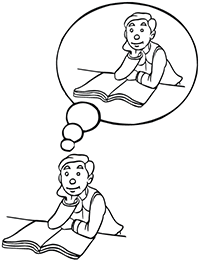What is practitioner enquiry?
This image from the GTC Scotland website clearly shows that it is about practitioners engaging with teaching in a different way. It is very much about a continual learning process, where the teacher is responsible for furthering their own learning through continual research. This is a fairly new idea for teachers in Scottish schools; so why is it important?
Although it focuses on Australia, the video below is just as relevant to practitioners here in Scotland, as it highlights the importance of teachers and the role they play in schools.
As the video highlights, the best teachers are those who are the best learners. People who engage in current issues relating to education, and the world in general, are in a much better position to teach children about the world they are living in today. This gives the pupils a very relevant and diverse education, which enhances their learning in areas that otherwise wouldn’t have been possible. It is clear that the best kinds of teachers are ones who take action.
All of the efforts that teachers put towards becoming a better enquiring practitioner should be relevant to providing their pupils with the best education they can. One of the biggest benefits of practitioner enquiry is that teachers can look further into particular topics and discover new ideas and theories behind these subjects. This will then enable them to make more elaborate, fun and engaging lesson plans and will allow them to continue on their learning journey beyond university.
A further bonus of practitioner enquiry is being able to talk about what you have learnt with a colleague and share new ideas and findings with one another. As one of the main challenges of this type of practice is feeling lonely or isolated, it is a great way of avoiding this situation. Another challenge might be if, during your research, your morals and beliefs are questioned or challenged. It may be that an idea you have never considered before causes you to take a completely new stance on a topic but this is not an easy shift to make.
As a professional, it is important to remember to use a variety of sources and not believe everything that one particular author has to say. A big part of practitioner enquiry is about asking questions. Why has the author taken this stance? What does this mean in relation to what I already know? How can I use this new knowledge to ensure that my pupils are getting the most out of my lessons?
As a student I think it will be important for me to remember to keep questioning my practice. It will be vital to do continual research to keep up with the fast pace world that we live in today. With massive advances in technology and the ever changing education system, I know just how important it will be to engage as an enquiring practitioner.




